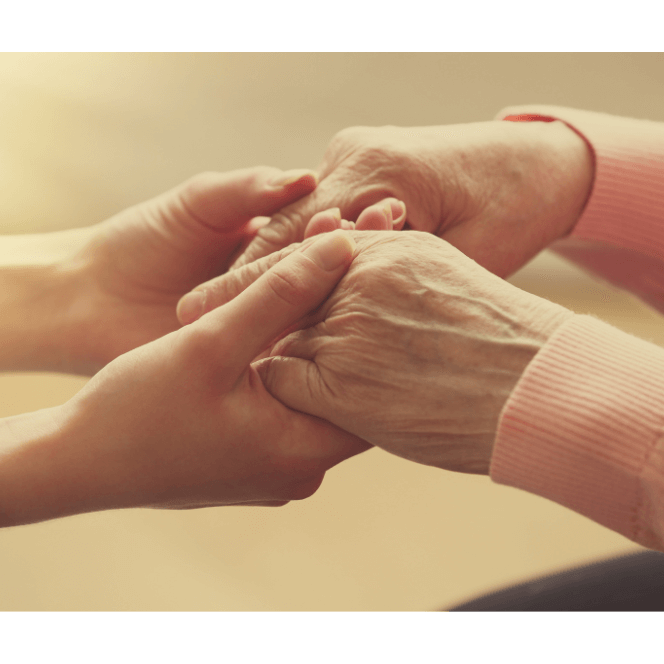Part 3 of 3: A carers time is grossly undervalued
Expanding on my observations of my grandmother as a carer for my aunt (for deeper context please see articles one and two in the series) I can see how much she has sacrificed to make my aunt’s life as amazing as possible. From the countless doctors appointments or getting her favourite weekly magazine, enriching her life with skills from the local college or religiously buying Pepsi Max. My grandmother cares with such grace, dignity and selflessness that I cannot help but massively admire and respect her. Being a carer for 39 years is an incredible commitment and simply incomprehensible dedication of time.
Both formal and informal carers struggle with the hegemony of time. As mentioned in the previous article, more than half of care workers could earn more money working at a supermarket than as a carer (The Guardian, 2022). It is easy to see why those starting at entry-level jobs would choose stocking shelves over being a carer. At a supermarket you clock in, complete easy repetitive tasks on an hourly rota, perhaps deal with the odd annoying customer, clock out, use your staff discount to get some food and go home without thinking about work. For carers they will start their day, complete their tasks, as well as offer a chat and company, only leaving when the job is completed. The patient may cry and beg them to stay, and the carer will go to do the same with a patient with different needs, clock out and go to bed worrying if the patient will make it through the night next time they see them. The job is incredibly unappealing for the dismal pay. In addition to the poor pay, there is the pressure to hide informal caring responsibilities from employers (Finch and Groves, 2022) due to the incompatible timetable for caring compared to the normal workday. Many caring demands cannot be accomplished in one lump sum such as shopping, activities like feeding and going to the bathroom must be done on an immediate basis. The Tamagotchi effect explains how some patients resemble the popular Tamagotchi “pet” that will die without constant affection, attention, feeding and cleaning (Twigg, 2000), however this is not possible for those who work full-time jobs.
Caring is incompatible with clock time because of its functional basis within the labour market (Adam, 1995). Clock time and the concept of the nine to five, functions to maximise efficiency of productivity and performance in order to allocate and sell on the labour market (Adam, 1995). Performing caring activities by taking an hour out of the day to take a relative to the bathroom and feed them lunch, becomes wasted time of productivity in the eyes of the employer. Formal paid carers struggle with balancing process time with clock time too. The caring crisis and Brexit have seen a decrease in carers, especially from outside the UK (Duda-Mikulin, 2018), which means that the time it takes to complete a task has become standardised based on time, requiring carers to move on after that time is up (Twigg, 2000). Time is always related to money, so the faster care work can be completed, the less money becomes tied up in the process (Adam, 2005) and the more productive a carer can be. Yet this contradicts with the notion of process time, the amount of time it takes to complete a task, which ranges significantly from patient to patient. There is never a spare moment when caring, often care work is interwoven with other tasks (Davies, 1994) from folding washing and making doctor’s appointments to making a cup of tea whilst putting the shopping away and having a chat. Twigg’s (2000) interviews with carers highlighted that the most upsetting part of a carers job can be leaving the severely alone elderly and disabled people who rely on human interaction in order to stay on schedule for the next person. Care work is undervalued because it is assumed to be easy by so many, yet it is this exact rhetoric that shows the lack of respect and understanding of a carers time from the perspective of hegemonic time under capitalism.
These three articles, which offer different perspectives of ethical duty, individual narratives and time, have aimed to enlighten the reasons why caring is constantly undervalued. Without acknowledging these concepts, the crisis of caring will continue to grow year upon year. This discussion has showcased that it is impossible to separate feminist discourse from caring since many of the inequalities stem from the patriarchy and a selfish, profit driven capitalist system. Whilst women are still laden with the majority of care work, future discourse needs to begin with debunking the biological perspective on women’s capacity for caring over men. Although the concept of the community went out the window many years ago, with an aging population and increase in the cost of living, perhaps more people could begin to spark up conversations with neighbours and carers to lend a helping hand to acknowledge and value the true scale of work carers do to help those in need. Whilst my family’s experience is simply one out of millions of others in similar situations, time is against them as my grandmother will be needing care in the near future and the onus of care will pass onto another family member. My other aunt has already left her job to be a carer full time, which will become stressful financially, emotionally and socially. The caring crisis spreads far and wide across the country and looks different for all families and professionals, but I hope this article has given a personal narrative to the faceless crisis affecting so many others.
References
Adam, B. (1995). Timewatch. Cambridge: Polity Press.
Davies, K. (1994). The Tensions between Process Time and Clock Time in Care-Work. Time & Society, [online] 3(3), pp.277–303.
Duda-Mikulin, E.A. (2018). Gendered migrations and precarity in the post-Brexit-vote UK: the case of Polish women as workers and carers. Migration and Development, [online] 9(1), pp.1–19.
Finch, J. and Groves, D. (2022). A Labour of Love. 1st ed. [online] London: Routledge. [Accessed 8 Jan. 2023].
The Guardian (2022). Care work has been undervalued for years. Now we see the consequences | Letters. [online] The Guardian. [Accessed 11 Jan. 2023].
Twigg, J. (2000). Bathing – the Body and Community Care. 1st ed. [online] London: Taylor & Francis Group. [Accessed 8 Jan. 2023].
Melissa Brodie is a third year Sociology student at the University of Liverpool, finding interests in health and lifecourse, digital studies and feminism. She has thrown herself into everything university life has to offer from playing the alto saxophone in two bands to being the personal relations and charities representative of the Liverpool University Royal Naval Unit. Her family have inspired this piece and continue to support her academic journey. Melissa Brodie | LinkedIn


